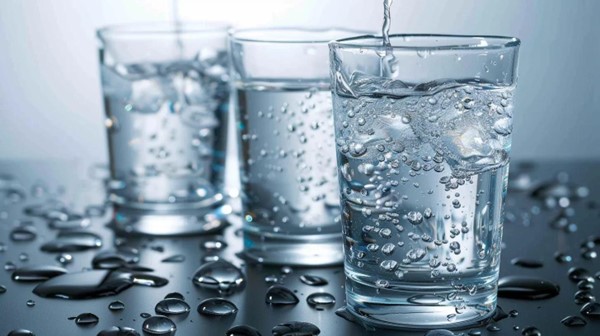
Tortilla Crusted Tilapia
Tortilla Crusted Tilapia with brown rice and carrots (Limit per order)
Mustard Salmon
Mustard Salmon with roasted potatoes and broccoli (Limit per order)
Herb Butter Cod
Herb Butter Cod with mashed potatoes and carrots (Limit per order)
Chicken Santa Fe
Chicken Santa Fe with roasted red skin potatoes, black beans and corn
Lentil Soup
Warm up with a comforting bowl of lentil soup, a nutritious and gluten-free option that supports brain health and provides essential nutrients. This hearty dish combines protein-rich lentils with a variety of vegetables, offering a satisfying meal that aligns with your dietary needs without relying on advertising claims.
Whole Grain Pancakes
Pancakes, turkey sausage, and syrup.
Types of Food Boost Recovery & Featured Recipes

Our diverse menu is thoughtfully crafted to support the body’s healing processes, offering a delightful array of dishes that cater to various tastes and dietary needs. From hearty breakfast options to nutrient-dense main courses and comforting classics, LifeSpring’s recovery-boosting meals provide essential nutrients for muscle repair and overall well-being.
Our carefully curated selection includes protein-packed whole grain waffles, nourishing oatmeal variations, and flavorful fish dishes like Parmesan crusted tilapia and BBQ salmon. For those seeking comfort food with a healthy twist, LifeSpring offers satisfying options such as Swedish meatballs and butternut squash soup. These meticulously designed recipes not only tantalize the taste buds but also optimize recovery, helping individuals maintain a balanced approach to nutrition. By incorporating our delicious and nutritious meals into their diet, LifeSpring’s customers can support their body’s healing processes while enjoying a diverse and flavorful menu.
Recovery Boost Diet Tips

Proper hydration and carbohydrate-rich foods play crucial roles in boosting recovery, and LifeSpring Home Nutrition incorporates these elements expertly into our meal plans.
Hydration
Adequate hydration is essential for regulating body temperature, transporting nutrients, and removing waste products from the body. LifeSpring encourages increased water consumption alongside our meals, recognizing that proper fluid intake enhances the overall effectiveness of a recovery diet.
Carbohydrate-Rich Foods
Carbohydrate-rich foods are a cornerstone of LifeSpring’s recovery meals. Complex carbohydrates, such as those found in potatoes and other starchy vegetables, are vital for replenishing glycogen stores depleted during intense physical activity. By including these foods in moderation, LifeSpring ensures our meals provide sustained energy and support muscle recovery without excessive calorie intake.
Lean Proteins & Healthy Fats
LifeSpring’s approach to recovery nutrition goes beyond just hydration and carbohydrates. Our meals also incorporate lean proteins for muscle repair and healthy fats to support hormone production and nutrient absorption. This balanced combination of nutrients, along with proper hydration, creates a comprehensive approach to recovery nutrition.
Choose LifeSpring’s Recovery Boost Meals
By choosing LifeSpring Home Nutrition’s recovery meals, individuals can benefit from a scientifically-backed nutritional strategy that emphasizes the importance of hydration and carbohydrate replenishment. These carefully crafted meals support overall health and well-being, helping to optimize the body’s recovery processes while providing delicious and satisfying dining options.
Frequently Asked Questions about Recovery Boost Meals

What supplements can I take to help boost recovery?
Patients looking to boost recovery can consider several dietary supplements and natural options to support the body’s healing processes. Key supplements include protein powders, amino acids, and omega-3 fatty acids, all of which play crucial roles in muscle repair, reducing inflammation, and supporting overall health. Protein, for instance, is vital for rebuilding muscle tissue and is particularly beneficial after strength training or intense exercise. Amino acids, the building blocks of protein, can help alleviate delayed onset muscle soreness (DOMS) and aid in recovery.Incorporating omega-3 fatty acids, found in fish oil or flaxseed oil, can help reduce inflammation and support heart health. Omega-3s are known to improve blood flow, which can enhance nutrient delivery to recovering tissues. Additionally, vitamin C and zinc are essential for maintaining a robust immune system and can aid in wound healing and tissue repair.
For those looking for natural alternatives, fresh fruit and vegetable juices are excellent sources of concentrated vitamins and minerals. Juices rich in antioxidants like blueberries, citrus fruits, and mango can combat oxidative stress and support recovery. These juices can be integrated into a balanced diet or enjoyed separately as a refreshing and nutritious drink.
It’s important to note that while supplements can provide additional support, they should not replace a well-rounded diet that includes a variety of whole foods. A balanced diet, rich in whole grains, lean proteins, healthy fats, and a diverse range of fruits and vegetables, is fundamental for optimal recovery and overall health.
Before starting any supplementation regimen, it’s advisable to consult with a health care provider or dietitian to ensure that the supplements are safe and appropriate for individual health needs and conditions. This is particularly important for individuals with specific health concerns, such as those recovering from injury, stroke, or other diseases.
Is it better to rest or stay active during recovery?
Balancing rest and activity during recovery depends on the individual’s condition and the guidance of their healthcare provider. For those recovering from intense exercise or minor injuries, incorporating light activities such as walking or gentle stretching can promote blood flow, reduce inflammation, and aid in healing. This approach helps in managing delayed onset muscle soreness (DOMS) and maintains skeletal muscle function without overexertion.Patients recovering from more serious conditions, such as cancer or stroke, should closely follow their doctor’s recommendations regarding activity levels and nutrition. For example, easily digestible foods like pasta, soups, and seed-based snacks can provide essential nutrients without putting extra strain on the digestive system.
Sports nutrition experts often advocate for a combination of rest and active recovery for athletes. This method might involve alternating periods of complete rest with low-intensity activities, such as yoga or light swimming, to maintain fitness and psychological resilience while allowing the body to recover. Strength training at reduced intensity can also help keep muscles engaged without causing further damage.
During recovery, it’s crucial to focus on a nutrient-dense diet. Foods rich in protein, healthy fats, and antioxidants support the body’s healing processes. Protein sources like chicken, fish, and beans aid in muscle repair. Healthy fats from olive oil, avocado, and nuts support hormone production and reduce inflammation. Additionally, fruits and vegetables provide essential vitamins and minerals; for instance, vitamin C from citrus fruits enhances immune system function and tissue repair.
Hydration is another key element in recovery. Drinking plenty of water and replenishing electrolytes through beverages like coconut water can prevent dehydration and fatigue.
For those needing an extra nutritional boost, dietary supplements such as omega-3 fatty acids, amino acids, and multivitamins can be beneficial, but should be taken under the supervision of a healthcare professional to ensure safety and appropriateness for the individual’s specific health needs.
What should you eat to recover from Covid-19?
Individuals recovering from COVID-19 should prioritize a healthy diet rich in nutrient-dense foods to support their immune system, muscle recovery, and overall health. Incorporating protein-rich options like lentils, lean meats, and fish can help rebuild muscle tissue and provide essential amino acids. Avocados and nuts are excellent sources of healthy fats, which are crucial for energy production and nutrient absorption. Patients should avoid foods high in added sugar, as they can suppress immune function and contribute to inflammation.A balanced diet that includes plenty of fruits, vegetables, and whole grains provides essential vitamins and minerals that boost the immune system and support recovery. For instance, vitamin C from citrus fruits and berries acts as a potent antioxidant, enhancing immune function and aiding in tissue repair. Foods rich in zinc, such as nuts and seeds, can also support immune health.
Hydration is key to maintaining proper bodily functions and flushing out toxins. Drinking plenty of water, along with herbal teas, can prevent dehydration and help manage fatigue. Patients should aim for a regular intake of electrolytes to maintain fluid balance and support overall recovery.
To manage energy levels and prevent fatigue, consuming small, frequent meals throughout the day is recommended. This approach helps maintain stable blood sugar levels and provides a steady supply of nutrients. Incorporating a variety of whole grains, legumes, vegetables, and healthy fats can ensure a well-rounded intake of essential nutrients.
For those who find it challenging to meet their nutritional needs through diet alone, dietary supplements such as multivitamins, omega-3 fatty acids, and vitamin D can be beneficial. However, these should be taken under the guidance of a healthcare provider to ensure safety and appropriateness, particularly for individuals with underlying health conditions or who are on medication.
Should I prioritize sleep during the recovery process?
Prioritizing sleep during the recovery process is crucial for overall health and well-being. As a professional in the health and wellness industry, it’s important to understand the vital role sleep plays in the body’s ability to heal and repair itself. During sleep, the body undergoes various essential processes that aid in recuperation, including tissue regeneration, hormone regulation, and immune system strengthening.Adequate sleep is particularly important for those recovering from intense exercise, injury, or illness. It helps reduce inflammation, alleviate pain, and decrease the risk of delayed onset muscle soreness (DOMS). Sleep also supports brain function, enhancing psychological resilience and cognitive performance, which are crucial for maintaining a positive mindset during recovery.
For athletes and fitness enthusiasts, sleep is a key component of sports nutrition and recovery. It aids in muscle repair after strength training and helps replenish energy stores depleted during physical activity. Proper sleep hygiene can even contribute to improved cardiovascular health and reduced risk of chronic diseases.
Failing to prioritize sleep can have detrimental effects on the body’s ability to heal. Sleep deprivation can impair immune function, increase stress levels, and prolong recovery times. It may also lead to hormonal imbalances that affect metabolism and weight management. Moreover, lack of sleep can negatively impact mental health, potentially leading to increased anxiety and decreased motivation during the rehabilitation process.
To optimize sleep for recovery, consider the following tips:
- Maintain a consistent sleep schedule, even on weekends.
- Create a relaxing bedtime routine to signal your body it’s time to wind down.
- Ensure your sleeping environment is cool, dark, and quiet.
- Limit exposure to blue light from electronic devices before bedtime.
- Avoid caffeine and alcohol close to bedtime, as they can disrupt sleep quality.
- Consider incorporating relaxation techniques like yoga or meditation to reduce stress and promote better sleep.
 Call To Order
Call To Order













